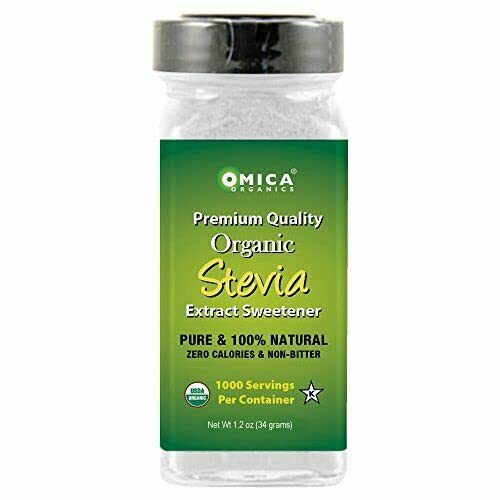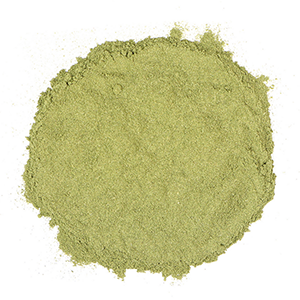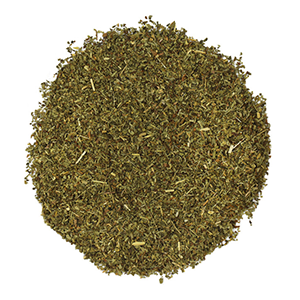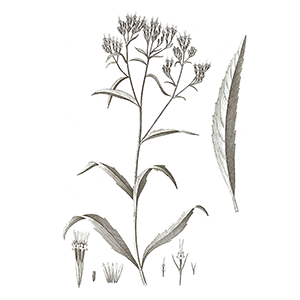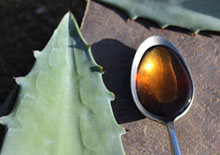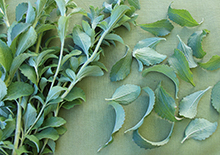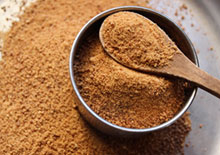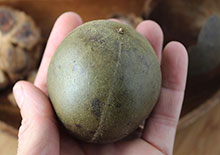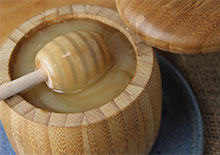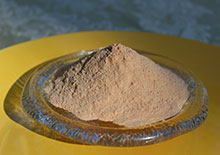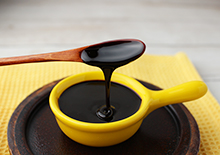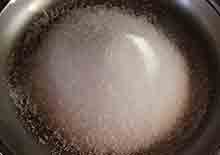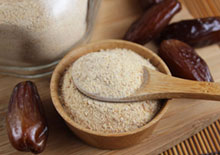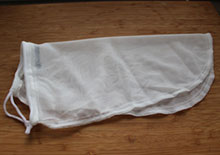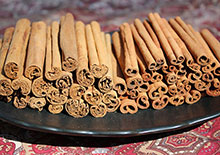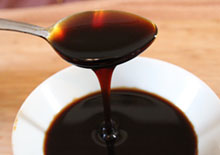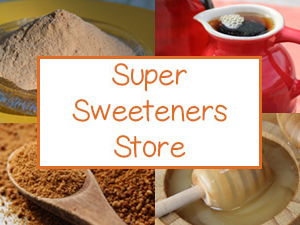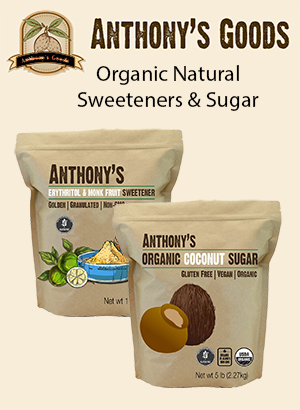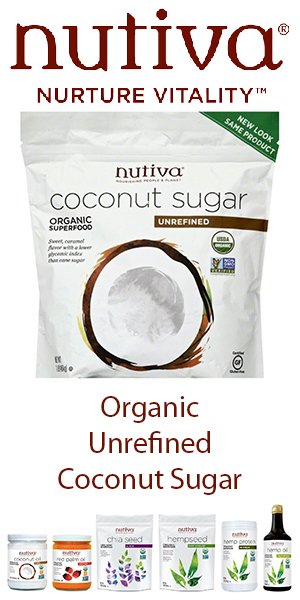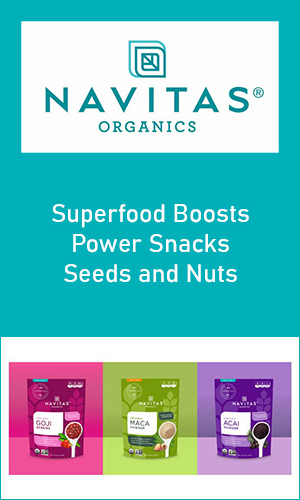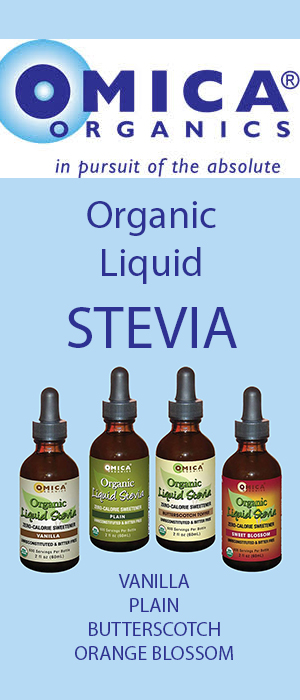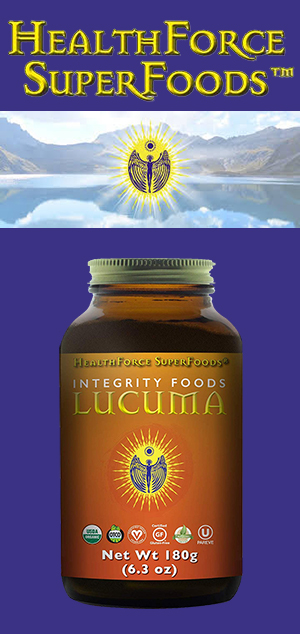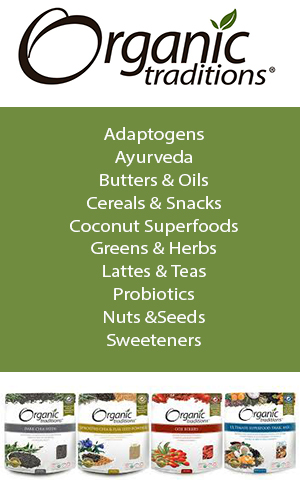- Home
- Sweeteners
- How to Make Stevia Extract
How to Make Stevia Extract Using Different Methods
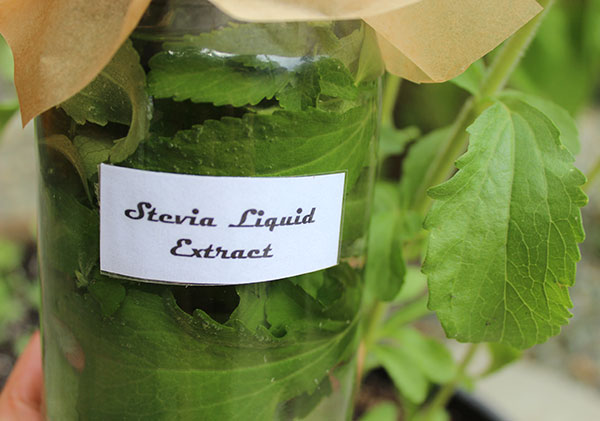
Want to learn how to make stevia extract from a few simple ingredients? The process is very similar to preparing any herbal tincture and can be achieved in a variety of different ways.
Typically, using an alcohol, like vodka or brandy, as a stevia leaf solvent is the most popular way to make homemade liquid extracts. We'll share a couple ways to do this using vodka for both a raw tinctured stevia as well as a heated non-alcoholic concentrate.
However, stevia extracts can also be created from pure water and glycerin utilizing several techniques depending on your personal preferences.
Most commercial stevia liquid concentrates are made using a combination
of water and glycerine, containing very little alcohol or are
alcohol-free. We personally tend to make our extracts using mostly water and some glycerin as opposed to alcohol-based solutions.
The key to making a good stevia leaf extract is in how long you let it tincture. Stevia requires a short alcohol tincturing time as compared to other herbs and roots. When the leaves sit too long in the alcohol menstruum, the solution can loose some of the sweet components and may develop a residual aftertaste and strong bitter flavor.
Stevia Leaf Extracts, A Popular Sugar Alternative
Stevia leaf extracts, over the past few years, have become a popular alternative to glycemic sugars for those on a low sugar diet. You can find them in many forms and flavors usually available in 1-2 ounce dropper bottles. They are convenient for adding sweetness to teas and beverages and can also be used with other natural sweeteners in various recipes and are, of course, excellent for sweetening desserts.
Recognized as a valuable sugar alternative, stevia has a very sweet taste yet no absorbable sugar content or calories because of the way the steviol glycosides are metabolized. Using stevia concentrates or whole leaf powders with other sugars like coconut sugar, maple syrup and raw honey, helps to lower the total glycemic index when used in recipes. This may be especially significant for diabetics, overweight individuals or those prone to yeast infections.
Why Make Your Own Stevia Liquid Extract?
Learning how to make stevia extracts is a very satisfying experience
and a good way to regulate the quality of your ingredients used. They
can not only taste just as sweet as any commercial brand, but are also
an upgrade nutritionally speaking, especially when sourced from whole
green stevia leaves.
Most all brands utilize highly concentrated and refined extracts of the leaf and, although these are a definite upgrade from the standard artificial sugars, like saccharin and aspartame, they are not exactly created from whole plant elements.
For more information about using stevia as a natural sweetener visit our stevia page.
The other thing to factor in when deciding to make your own homemade-style liquid is the considerable savings you will achieve as a result. A two ounce bottle of organic stevia solution can cost anywhere from between 9-15 dollars. When you make the liquid from scratch, you can literally make up to 10-20 times that amount for the same cost or less, depending on materials used.
We usually make our solutions in pint size jars or 3oz bottles, as a little goes a long way as far as dosage. This means that you will have a back stock of liquid that could potential last you for several years. Alcohol tinctures will preserve for many years, while water or glycerin-based stevia's have much less of a shelf life. For this reason we typically use 2-3 ounce jars when using water or glycerin as they don't last as long.
Moreover, stevia liquid concentrates can be additionally flavored to your liking by adding in any number of herbs, flowers and spices when creating your tinctures or extracts.
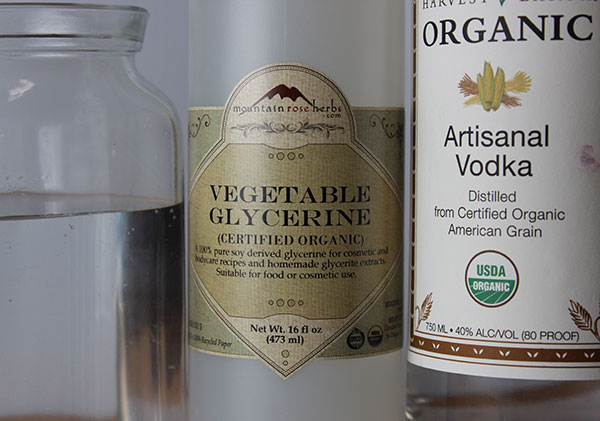
Different Ways to Make Stevia Liquid Extract
There are several ways to make your liquid stevia, which can be used by the drops or dropper-full in drinks and recipes. To create these solutions you can basically choose between three different solvents or combinations of all three:
- alcohol
- pure water
- glycerine
These substances will dissolve the plant material or powder and hold it in
suspension.
Below we have several recipes on how to make stevia extract using these assorted menstruums utilizing either fresh stevia, dried leaves, ground leaf powder as well as white stevia sugar.
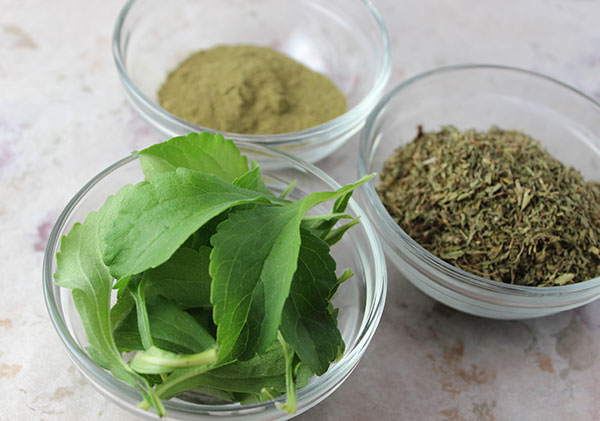
How to Make Stevia Extract Using Alcohol
Alcohol Tinctures
Alcohol tinctures can be created using either the fresh, dried or powdered green leaf or refined extracts. We tend to use fresh and dried leaves only when making alcohol-based solutions.
The green powder and white crystalline extracts are not our personal favorites to tincture, but can be effectively used to accomplish the same results. They do however require less extraction time, usually about 24 hours, to produce a very sweet end result. The green leaf powder can be harder to remove completely from the alcohol as it creates a residue that is difficult to filter out.
The alcohol acts as a solvent to extract the sweet components. We use vodka but you can also use other liquors, such as rum or brandy.
Alcohol-based extracts have a shelf life of 4-6 years, which is one of the reasons it is commonly used for tincturing herbs. Alcohol creates very potent solutions, extracting both medicinal and sweet qualities from the leaf.
Tincture Concentrates
Tincture concentrates go through the same extraction process as the straight tinctures, but also employ the use of heat to "concentrate" the stevia sugars and evaporate the alcohol content.
There are pluses and minuses to this procedure. For those sensitive to alcohol, you won't have any in your drops of liquid, but the down side is that heating the stevia destroys a lot of its nutritional content. It really depends on what is more important to you specifically, as you will be sacrificing one for the other.
Stevia Extract Recipe (Using Alcohol)
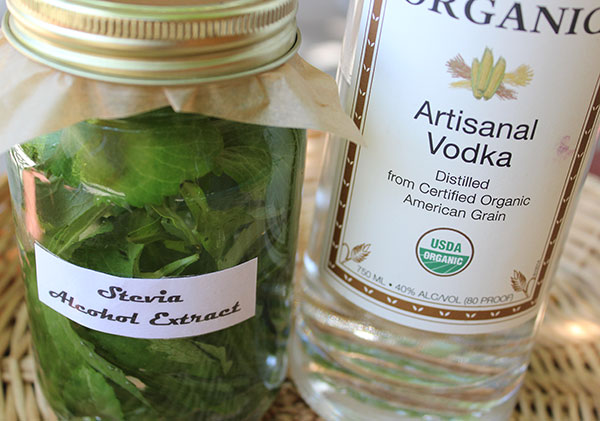
Ingredients:
- organic vodka (about a pint)
- fresh stevia leaves or dried leaves
The measurement requirements are fairly loose when it comes to making stevia tinctures, the more leaf you use the sweeter it will obviously be. We generally try to fill a pint size jar full of fresh leaves or use about 3/4 of a pint jar of dried leaves as they have less water content. Alternatively, you could also use both fresh and dried leaves in the same tincture, if you only have a small-sized plant.
Directions:
- Harvest the stevia leaves from the stevia plant stem, rinse and allow to dry. You can chopped them up or leave them whole.
- Pack a pint glass jar full of fresh, slightly wilted stevia leaves (or use 3/4 a pint jar of the dried leaf).
- Pour vodka over the top of leaves all the way to the lip, leaving about a 1/4" space between the alcohol level and the jar lid.
- Place wax paper, the size of the jar opening, over the top and screw the lid on tightly.
- Store in a cool, dry dark location for 30-36 hours, shaking the jar periodically throughout this time.
- Taste test after 30 hours. It will be darker in color.
- When the tincture is complete, strain out plant material using a fine mesh strainer, nut milk bag, cheesecloth or coffee filter. (It will usually be a darker green-brown color when using vodka as your solvent.)
- Place in a labeled 2-4 oz dark glass dropper bottle for use in drinks and recipes.
- Store the remaining stevia in a labeled glass jar away from direct light in a cool location.
For Alcohol Concentrate:
To concentrate the sweet qualities and remove the alcohol content you can heat the filtered tincture over a low flame for 20-30 minutes in a glass pot. This will create a thick dark and sweeter syrup-like consistency. It is important not to boil the alcohol as it will reduce some of the sweetness.
Alcohol concentrates won't last as long as straight alcohol tinctures, because the alcohol acts as a preservative. They will usually have a shelf life of up to three months or longer when refrigerated.
How to Make Stevia Extract Using Water
To make a stevia liquid solution using straight water, we tend to use either the green powder or a white powdered extract. Both have their advantages and disadvantages.
Green leaf powders are higher in nutritional components and are a whole food sugar that is potentially better for the body long term. However, these powders, ground from the dried leaves, do tend to have an strong aftertaste.
This dark green version can be made by infusing the powder in hot water or making an unheated solution, depending on your preference. We prefer using freshly ground dried stevia leaves and opposed to purchased pre-powdered leaves.
The white stevia sugars, like the one from Omica Organics, dissolve better in water and don't need to be filtered out, plus they are more palatable for some people. You also don't need to use as much per recipe as they are highly concentrated in steviol glycosides. This type of liquid concentrate is very simple to make and does not require a hot water infusion.
Although this variety is closer to manufactured stevia liquids, it is much cheaper to make yourself.
When making water based stevia solutions it is sometimes good to use a little bit of alcohol or glycerin to preserve it.
Stevia Extract Recipe (Using Water and Stevia Sugar)
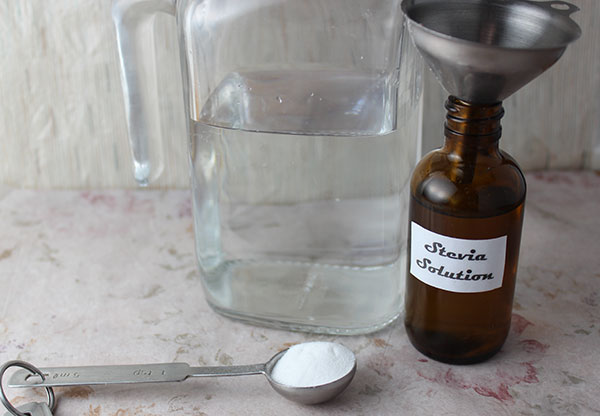
Ingredients:
- distilled or pure filtered water
- 1-2t stevia white crystalline sugar extract
- a dropper of glycerin or alcohol (optional)
- 2oz glass dropper bottle
Directions:
- Place water in the dropper bottle, leaving some space at the top.
- Add in stevia sugar using a small funnel if needed.
- Shake with lid on to dissolve the sugar.
- Add a dropper of glycerin or alcohol as a preservative if desired.
- Store in the refrigerator.
Stevia Extract Recipe (Using Water and Green Powder)
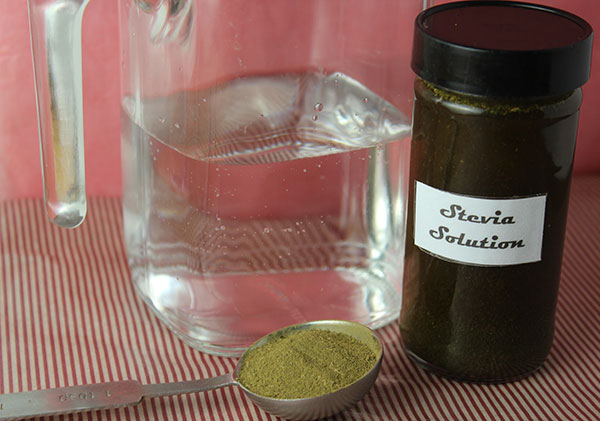
Ingredients:
- 3 ounce jar of distilled or pure filtered water
- 1T green powdered stevia
- a dropper of glycerin or alcohol (optional, but recommended)
Directions:
- Place green powder in a clean glass 3oz jar, like a spice jar.
- Pour semi-hot (or room temp) water into the jar, leaving a small space at the top.
- Stir briefly and steep with a loose lid.
- When cooled shake with lid on.
- Allow to sit for 24 hours in a cool dark place, shaking periodically.
- Filter out powder through a fine mesh strainer or nut milk bag.
- Add 2 droppers of glycerin or alcohol as a preservative if desired.
- Place in a dropper bottle and label.
- Store solution in the refrigerator.
How to Make Stevia Extract Using Glycerin
To make glycerin stevia tinctures we use dried leaves but you can also use the fresh leaf, powder or white extract. Vegetable glycerine, or glycerol, is a clear, odorless liquid with a sweet taste and the consistency of a thick syrup. It is commonly used among herbalists as an alcohol replacement when tincturing herbs. It is a 3-carbon sugar alcohol similar to xylitol and the erythritol sugar found in Lakanto sweetener.
Using glycerine as a solvent, instead of alcohol, might be more appropriate for those with alcohol sensitivities. Glycerine-based liquid stevia generally has a shorter shelf life than alcohol, but will usually last a year or more especially when refrigerated.
Because it is soluble in water, it can also be used as a preservative when making water-based solutions. When purchasing glycerine it is important to use high quality organic glycerine derived from plant fats, not animal fat like tarrow. (*) Mountain Rose Herbs has one of the best we have come across.
Stevia Extract Recipe (Using Glycerine and Water)
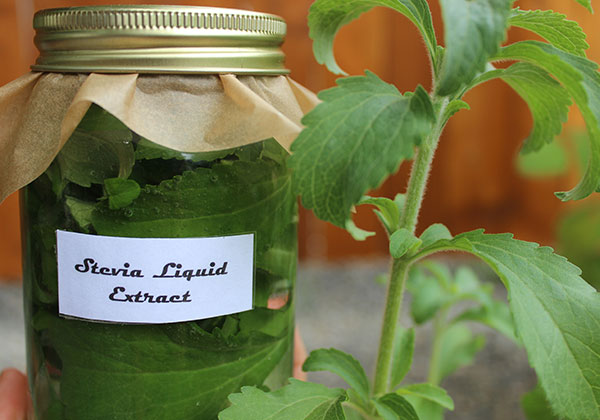
Ingredients:
- 1/4C distilled or filtered water
- 3/4C organic glycerine (about a pint)
- fresh stevia leaves or dried leaves
- one pint glass jar
- 1-2 droppers of alcohol (optional)
Directions:
- Harvest the stevia leaves from the stevia plant stem, wash and allow to dry if needed. You can chopped them up or leave them whole.
- Pack a pint glass jar full of fresh, slightly wilted stevia leaves, or use 3/4 a pint jar of the dried leaf.
- Pour glycerine over the top of leaves about 3/4 full leaving room for the water.
- Add warm or room temp water, filling to almost the top, leaving a small space.
- Place wax paper, a little bigger than the size of the jar opening, over the top and screw the lid on tightly.
- Shake to mix the water and glycerine.
- Allow to sit between 36-48 hours, shaking the jar periodically throughout this time.
- Taste test after 30 hours. It will be darker in color and the leaves with loose some of their green pigmentation.
- When
the tincture is complete, strain out plant material using a fine mesh
strainer, nut milk bag, cheesecloth or coffee filter. (It will usually
be a darker green-brown color when using vodka as your solvent.)
- Place in a labeled 2-4 oz dark glass dropper bottle.
- Store the remaining stevia in a labeled glass jar away from direct light in a cool location or in the fridge for maximum shelf life.
Stevia Extract Recipe (Using Glycerine and Dried Leaf)
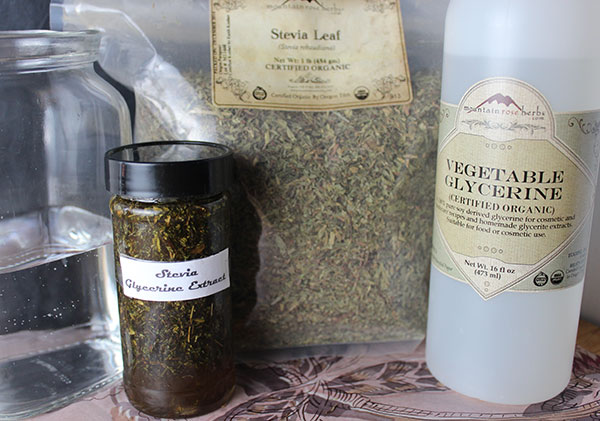
Ingredients:
- 1 1/2oz of glycerine
- 5T dried stevia leaves
- distilled or filtered water
- 3oz glass jar
Directions:
- Fill a 3oz glass jar half-full of glycerine.
- Add the dried leaves.
- Pour room temp water to the top of the jar, leaving a small space.
- Shake well with a tight lid.
- Allow to tincture between 36-48 hours.
- Strain out the leaves using a fine mesh strainer or nut milk bag.
- Bottle in a dropper jar and label.
- Store in a cool dark location.
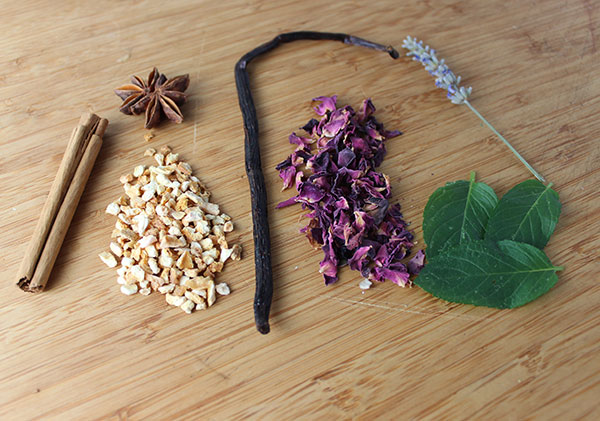
Adding Flavorings to Stevia Liquid Concentrates
It is also possible to add various flavor filled herbs and spices to homemade stevia extracts. This is very easy to accomplish by simply incorporating them into any of the recipes above before the tincturing process.
This may include the natural flavors of cinnamon stick, orange peel, star anise, fennel seed, vanilla bean, lavender blossom, cacao bean, rose petals and fresh mint leaves. Alternatively you can also use food grade essential oils or naturally flavored extracts.
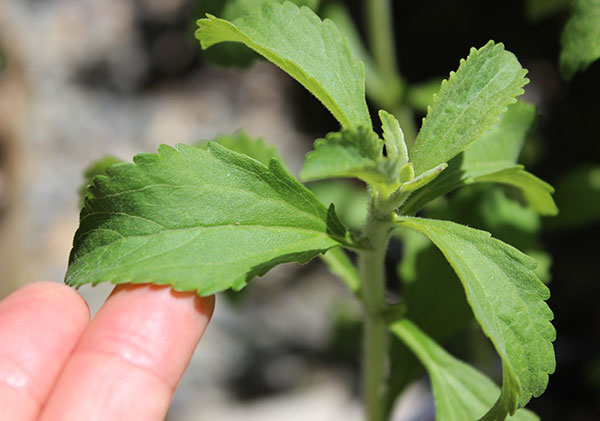
Growing Your Own Stevia Plant
We always promote growing your own foods and superfoods whenever possible and there is nothing quite like harvesting your own fresh stevia to make your tinctures and solutions.
The stevia plant is well tolerated in many semi-arid climates above freezing temperatures. It is an easy plant to grow and is naturally resistant to many potential pests and diseases. Because the seed is harder to germinate directly, with about a 10% success rate, we usually advise purchasing a seedling start or using a cutting from another plant.
Sometimes starts are available at local nurseries, depending on where you live, but they can also be ordered by mail. The leaves are harvested after the summer months when they are at their prime.
It usually dies back with the first hard frost, but leaves will develop at the base of the plant the following year if temperatures don’t get too far below freezing.
Shop Related Products (About Affiliates & Amazon Associate Paid Links)
Affiliate Disclaimer: This section contains affiliate product links. If you make a purchase through our recommended links, we receive a small commission at no additional cost to you. Thanks for the support.
